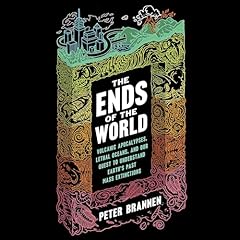
Transcendence
How Humans Evolved Through Fire, Language, Beauty, and Time
No se pudo agregar al carrito
Add to Cart failed.
Error al Agregar a Lista de Deseos.
Error al eliminar de la lista de deseos.
Error al añadir a tu biblioteca
Error al seguir el podcast
Error al dejar de seguir el podcast
 Exclusivo para miembros Prime: ¿Nuevo en Audible? Obtén 2 audiolibros gratis con tu prueba.
Exclusivo para miembros Prime: ¿Nuevo en Audible? Obtén 2 audiolibros gratis con tu prueba.Compra ahora por $21.48
-
Narrado por:
-
Gaia Vince
-
De:
-
Gaia Vince
How four tools enabled humanity to control its destiny
What enabled us to go from simple stone tools to smartphones? How did bands of hunter-gatherers evolve into multinational empires? Listeners of Sapiens will say a cognitive revolution - a dramatic evolutionary change that altered our brains, turning primitive humans into modern ones - caused a cultural explosion. In Transcendence, Gaia Vince argues instead that modern humans are the product of a nuanced coevolution of our genes, environment, and culture that goes back into deep time. She explains how, through four key elements - fire, language, beauty, and time - our species diverged from the evolutionary path of all other animals, unleashing a compounding process that launched us into the Space Age and beyond. Provocative and poetic, Transcendence shows how a primate took dominion over nature and turned itself into something marvelous.
©2020 Gaia Vince (P)2020 Penguin AudioLos oyentes también disfrutaron:




















Las personas que vieron esto también vieron:

Very much enjoyed it
Se ha producido un error. Vuelve a intentarlo dentro de unos minutos.
Tarique Perera
Se ha producido un error. Vuelve a intentarlo dentro de unos minutos.
easiest audiobook to listen to I've experienced
Se ha producido un error. Vuelve a intentarlo dentro de unos minutos.
Far too much bias and unsupported conclusions
Se ha producido un error. Vuelve a intentarlo dentro de unos minutos.
Cannot recommend this book
Se ha producido un error. Vuelve a intentarlo dentro de unos minutos.


